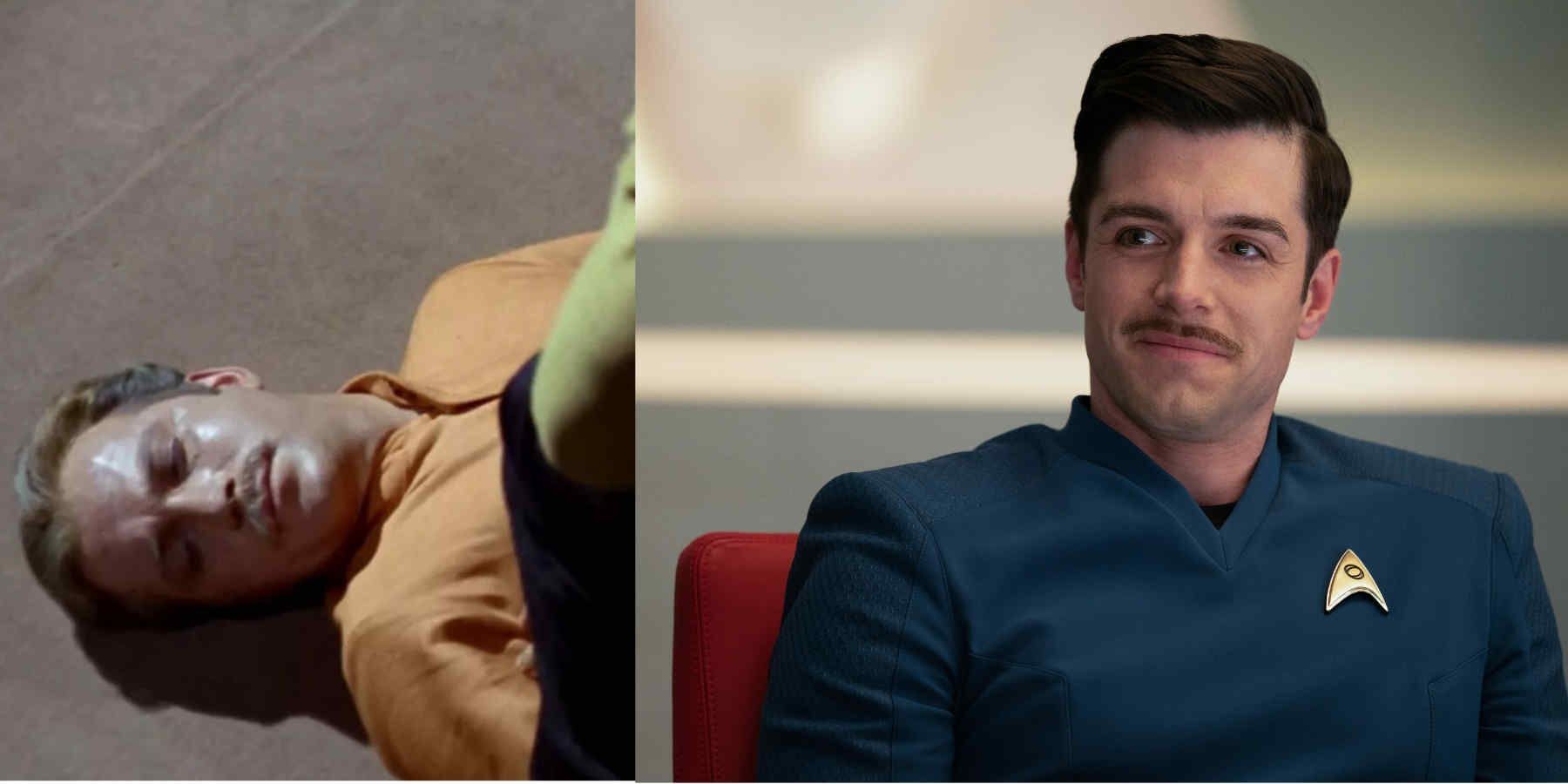Hope it’s ok to bring a link to a deeper dive article here. It seems a Daystrom Institute kind of analysis, and the background on Gene Coon’s shared script credit is worth documenting. (It’s new to me.)
TL;DR: Coon unintentionally mirrored plot lines from a June 1944 Astounding Science Fiction piece by Frederic Brown when he wrote an episode to fill a gap. The similarity was caught during a legal review so that the story’s author received co-credit.
Here’s the database synopsis of Brown’s novelette:
An advanced alien entity intervenes to stop a catastrophic war between humans and Outsiders. The entity chooses a champion from each side to decide the fate of the two races by fighting to the death in an arena designed to test their intelligence and courage.
Credit to Ryan Britt for this deep dive for Inverse. I’m not sure that I would go with his assessment that TOS is the only one that gave us the reflective version given that we’ve only seen the first part of Hegemony. The SNW season finale seems to be set up as a test of Pike that yet to come to a head. Spock and Chapel’s defeat of the environment-suited Gorn on the Cayuga’s saucer seems likely to be a set-up, to be expanded upon and mirrored in the second part yet to be seen.
Could it be possible that Pike might yet have his own toe-to-toe face off with the Gorn? Actually, or metaphorically as he takes on the Gorn’s leadership?
And like both Kirk and the protagonist of the original story, might Pike keep his learned, deeper understanding of the other species somewhat secret?
That would resolve the Gorn arc in SNW while preserving Kirk’s understanding of the Gorn as monsters for Arena. It would also be consistent with the theme of the personal cost ‘keeping secrets’ that has been running through the show.



The thing is that while the technobabble is just that, the process represents how engineering gets done better than most other ‘serious’ SF, albeit at compressed speed.
Voyager did a better job than any at showing how the thinking and problem-solving work gets done - which to me is more the point.
All this criticism seems to come from folks who’ve never seen nerds working in teams being nerds. They seem to want science FICTION to be locked down to concepts that someone with a mid 20th bachelor’s degree in science would know.
Whereas the real life scientists and engineers in my circle react more like Erin Macdonald did when she was working on her physics PhD and saw Voyager. She recognized the process and thought it was cool that some of the newer concepts in gravimetrics were referenced but didn’t sweat the small stuff.